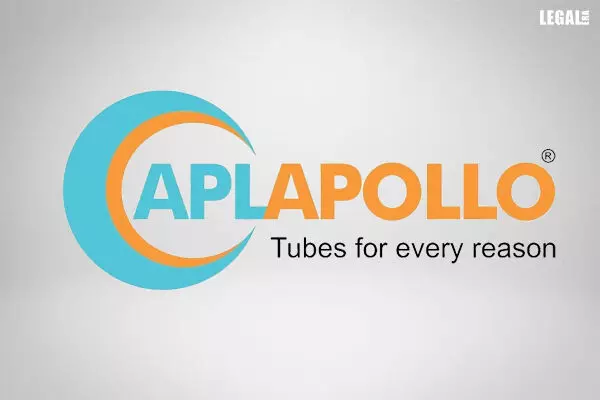- Home
- News
- Articles+
- Aerospace
- AI
- Agriculture
- Alternate Dispute Resolution
- Arbitration & Mediation
- Banking and Finance
- Bankruptcy
- Book Review
- Bribery & Corruption
- Commercial Litigation
- Competition Law
- Conference Reports
- Consumer Products
- Contract
- Corporate Governance
- Corporate Law
- Covid-19
- Cryptocurrency
- Cybersecurity
- Data Protection
- Defence
- Digital Economy
- E-commerce
- Employment Law
- Energy and Natural Resources
- Entertainment and Sports Law
- Environmental Law
- ESG
- FDI
- Food and Beverage
- Gaming
- Health Care
- IBC Diaries
- In Focus
- Inclusion & Diversity
- Insurance Law
- Intellectual Property
- International Law
- IP & Tech Era
- Know the Law
- Labour Laws
- Law & Policy and Regulation
- Litigation
- Litigation Funding
- Manufacturing
- Mergers & Acquisitions
- NFTs
- Privacy
- Private Equity
- Project Finance
- Real Estate
- Risk and Compliance
- Student Corner
- Take On Board
- Tax
- Technology Media and Telecom
- Tributes
- Viewpoint
- Zoom In
- Law Firms
- In-House
- Rankings
- E-Magazine
- Legal Era TV
- Events
- News
- Articles
- Aerospace
- AI
- Agriculture
- Alternate Dispute Resolution
- Arbitration & Mediation
- Banking and Finance
- Bankruptcy
- Book Review
- Bribery & Corruption
- Commercial Litigation
- Competition Law
- Conference Reports
- Consumer Products
- Contract
- Corporate Governance
- Corporate Law
- Covid-19
- Cryptocurrency
- Cybersecurity
- Data Protection
- Defence
- Digital Economy
- E-commerce
- Employment Law
- Energy and Natural Resources
- Entertainment and Sports Law
- Environmental Law
- ESG
- FDI
- Food and Beverage
- Gaming
- Health Care
- IBC Diaries
- In Focus
- Inclusion & Diversity
- Insurance Law
- Intellectual Property
- International Law
- IP & Tech Era
- Know the Law
- Labour Laws
- Law & Policy and Regulation
- Litigation
- Litigation Funding
- Manufacturing
- Mergers & Acquisitions
- NFTs
- Privacy
- Private Equity
- Project Finance
- Real Estate
- Risk and Compliance
- Student Corner
- Take On Board
- Tax
- Technology Media and Telecom
- Tributes
- Viewpoint
- Zoom In
- Law Firms
- In-House
- Rankings
- E-Magazine
- Legal Era TV
- Events
NCLAT Orders NCLT To Reconsider APL Apollo Tubes' Insolvency Plea

NCLAT Orders NCLT To Reconsider APL Apollo Tubes' Insolvency Plea
The National Company Law Appellate Tribunal (NCLAT) has instructed the NCLT to reconsider APL Apollo Tubes' insolvency petition against a buyer of its goods. Criticizing the Bengaluru bench of the NCLT for dismissing APL Apollo Tubes' claims based on a "Hypothetical Interpretation," the two-member NCLAT bench intervened decisively.
NCLAT emphasized that the tribunal should refrain from assuming the role of a litigating party by substituting its own conclusions without adequate pleading and evidence.
The appellate tribunal instructed the NCLT to expedite the proceedings and make every effort to resolve the matter swiftly.
The NCLAT's decision stemmed from a petition by APL Apollo Tubes challenging an NCLT order dated September 9, 2019, which dismissed its insolvency petition filed against Tanisha Scaffolding, an entity involved in marketing APL Apollo Tubes' products. APL Apollo Tubes asserted that Tanisha Scaffolding had not remitted payments owed for supplied goods, prompting the insolvency plea.
The NCLT had rejected the plea, citing a lack of documentary evidence provided by APL Apollo Tubes to substantiate that the debt was indeed payable at the time.
However, the appellate tribunal criticized this inference, stating that the NCLT based its decision solely on a hypothetical interpretation of the invoice contents without any supporting evidence or counter-pleadings.
"The NCLT should not have drawn conclusions in the absence of any counter-pleadings from the respondent regarding the implications of the purchase order on the demand notice and the previous invoices issued by the appellant, which detail the outstanding payment," the tribunal emphasized.
Furthermore, during the NCLAT proceedings, Tanisha Scaffolding failed to submit any objections or written statements to challenge these assertions, despite being given multiple opportunities to do so.
Overturning the decision, the NCLAT emphasized that tribunals established under a statute must limit their conclusions strictly to the pleadings and evidence presented by the parties.
"Tribunals or courts should refrain from substituting their own stance or findings to support either party's case in the absence of any opposing pleadings raised to challenge the assertions put forth by the other side," the NCLAT clarified.
"We believe that justice would be served by nullifying the order dated September 5, 2019, and remanding the matter to the NCLT, Bangalore Bench. This allows the respondent an opportunity to submit objections to the application under Section 9 and enables the tribunal to reconsider the case," the NCLAT concluded.


